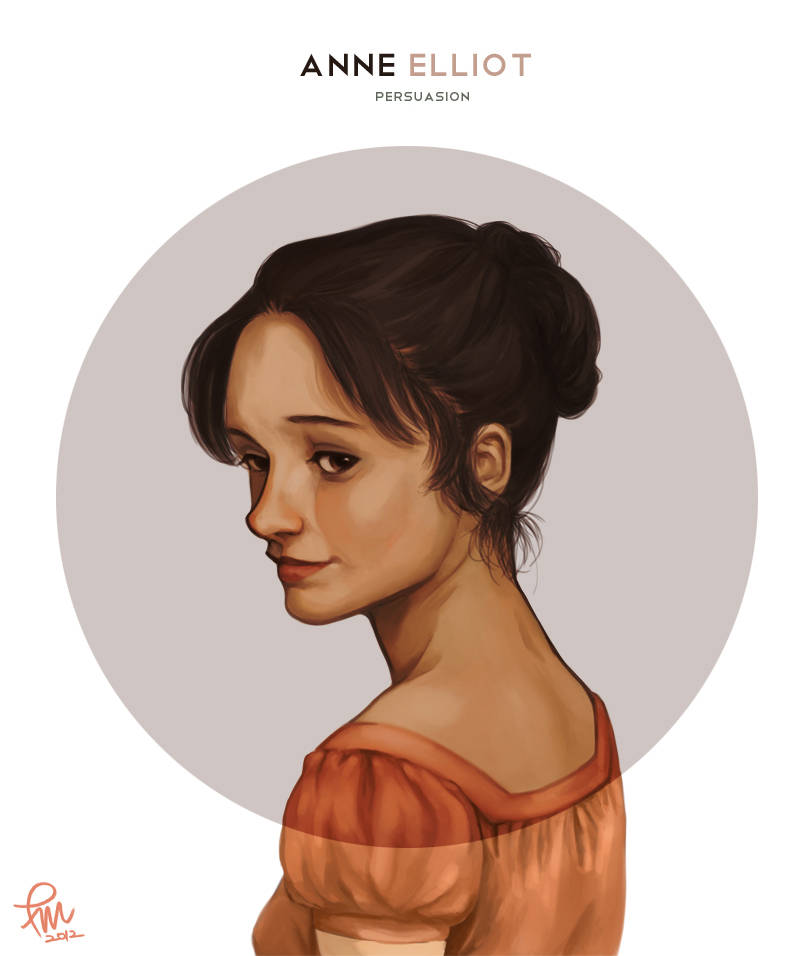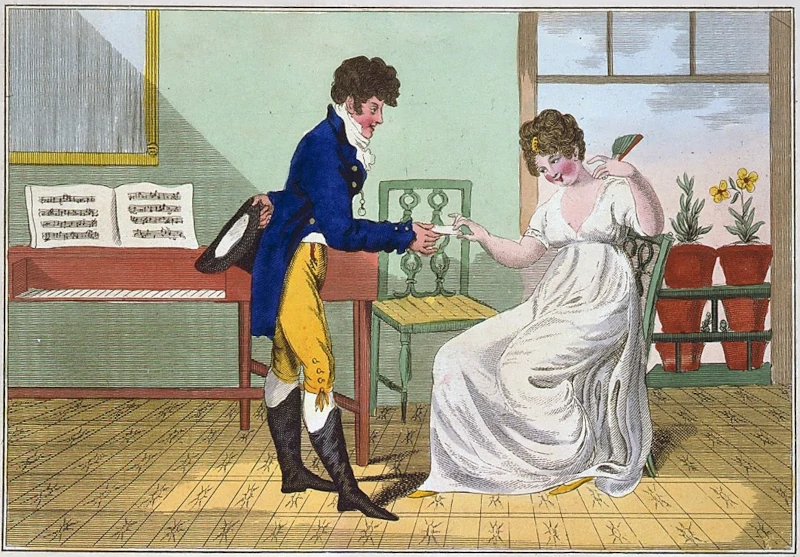
A Study in Classics: Modern-Day Anne Elliots: Love, Marriage, and Societal Pressure in Reality TV
Words By Zara Garcia
There’s something oddly addictive about reality dating shows. Watchers root for or against couples, forming emotional connections with them, and living vicariously through their experiences, all from the comfort of their own couches. And there’s always the anticipation that the couples formed won’t survive beyond the screen.
In shows like Love Is Blind, commitment is taken to a whole new level as participants get engaged before ever seeing each other, elevating the stakes and emotions in a way that other dating shows can’t compare to. While it’s entertaining to watch love stories between strangers unfold, these shows also serve to reflect modern-day anxieties about marriage and underscore the enduring societal pressure to tie the knot. Consider how these narratives parallel timeless tales of courtship about navigating the societal expectations to marry.
When it comes to marriage plots, Jane Austen is an undisputed master, and Persuasion distinguishes itself with its mature and level-headed protagonist, Anne Elliot, who seeks to rekindle romance at a later stage of life while facing mounting expectations to marry. Anne’s struggle between love and societal conformity mirrors the dilemmas that weigh heavily on the women in Love Is Blind. Exploring Persuasion to gain insight into how to navigate the pressures of meeting societal expectations while following one’s heart begs the question: What would Anne Elliot do?
Marrying for Financial Security
In Love Is Blind, the central question revolves around the authenticity of love transcending both physical appearances and the material world. However, when reality sets in, financial disparities become a significant challenge. In a recent season, the father of the bride expressed concern about her fiancé’s lower financial status, claiming that love sometimes prefers to “fly first class.” The revelation of a bad credit score ultimately led to the relationship’s demise, resulting in a dramatic wedding day abandonment.
This situation is reminiscent of Anne and Captain Wentworth’s first failed engagement. Anne fell in love with Captain Wentworth despite his lack of fortune and lower social status, but love was not enough. Sir Walter, Anne’s father, viewed it as a “degrading alliance.” And Lady Russell believed Anne would be throwing herself away to a man who “had no hopes of attaining affluence.” Their opinions, especially Lady Russell’s, deeply affected Anne and caused her to call off the engagement.
During the Regency Era, Georgian women’s marriages often hinged on securing husbands with substantial fortunes, as they had no separate legal identities and could not own property. Only if a wife outlived her husband could she gain a degree of financial independence through a marriage settlement, inheriting her husband’s fortune. However, Anne refuses to rush into another engagement at age twenty-two with Charles Musgrove out of financial interest, reflecting her strong character and values.
In fact, Anne believes marrying solely for money reflects bad character, while Mrs. Smith simply brushes it off with, “When one lives in the world, a man or woman’s marrying for money is too common to strike one as it ought.” Anne, like many modern women, recognizes the importance of both love and financial compatibility in a partnership. Later, she regrets calling off her engagement at the behest of others as Captain Wentworth goes on to acquire his own fortune.
In our modern day, women are no longer financially dependent on men, so what we can learn from Anne’s experience is to build trust in a relationship and support one another to achieve individual goals, ensuring both partners are prepared for a shared future. With this perspective, Anne would understand the decision of individuals in Love Is Blind to prioritize financial stability.
Biological Clock Ticking
Women in shows like Love Is Blind often join with the desire to start a family, fearing that waiting to meet the right person organically might jeopardize their chances of having children. Similarly, the unmarried women in Persuasion face the pressure to marry and start families while they’re still young, which is mirrored by Sir Walter’s fixation on youth and the Baronetage, a record of noble families.
The recurrence of women’s names in the Baronetage is due to their success in marrying and multiplying; therefore, Sir Walter values his daughters based on their perceived attractiveness and marriage prospects. He favors Anne’s sister Elizabeth the most because he believes she is still beautiful at twenty-nine and will soon marry suitably. But even Elizabeth feels “the years of danger” toward spinsterhood approaching and averts her eyes when she sees the Baronetage. Austen writes, “Always to be presented with the date of her own birth and see no marriage follow but that of a youngest sister, made the book an evil.”
Meanwhile, Sir Walter values Anne least of all because he always “had found little to admire in her.” At twenty-seven years of age, her father finds her “faded and thin” and even “haggard.” Austen writes, “He had never indulged much hope, he had now none, of ever, reading her name in any other page of his favourite work.” Despite her father’s disappointment, Anne isn’t swayed by the pressure to rush into marriage while still young to add more names to the Baronetage.
Austen’s novel shows the promise and beauty of discovering love in later stages of life, emphasizing the development of genuine connections without the urgency of starting a family. Anne’s experience serves as a reminder that women should not succumb to the notion that their time is running out, but instead, value themselves as individuals first.
Marrying for Love
Every participant on Love Is Blind shares the common desire to find authentic love based on inner qualities, rather than superficial attributes like appearance, age, or financial status. Yet these programs impose the pressure of falling in love, getting engaged, and marrying in just a few weeks.
Similarly, Anne and Captain Wentworth first fall in love and get engaged within the span of a few months. Despite Anne’s initial regret when she calls off the engagement at nineteen, as time passes, she doesn’t blame herself or others for influencing her decision. By the age of twenty-seven, she realizes she made the right choice given the circumstances at the time, while her unwavering love for Captain Wentworth proves it was more than a fling.
Time apart from each other not only sees Captain Wentworth become a more suitable match for Anne, but it also allows Anne to emotionally mature. Austen writes, “She had been forced into prudence in her youth, she learned romance as she grew older: the natural sequel of an unnatural beginning.” When they reconnect, they are able to build a stronger relationship based on their merits as equals and respect for their differences. Above all, Anne and Captain Wentworth’s love story illustrates that marriage results from a culmination of both romantic and realistic elements, and that it cannot be rushed if it is to last.
Jane Austen’s Persuasion and shows like Love Is Blind reveal the complexities of love and marriage that transcend time. The pursuit of genuine connections, the tension between love and practicality, and the weight of societal expectations all echo through these narratives. Anne Elliot’s journey serves as a timeless reminder that women should prioritize their individual worth and not yield to societal pressure, while also valuing love and financial compatibility in a partnership. For more of Austen’s love advice, read Jerakah Greene’s article “A Study in Classics: Dating Tips from Jane Austen” right here on F(r)iction.

